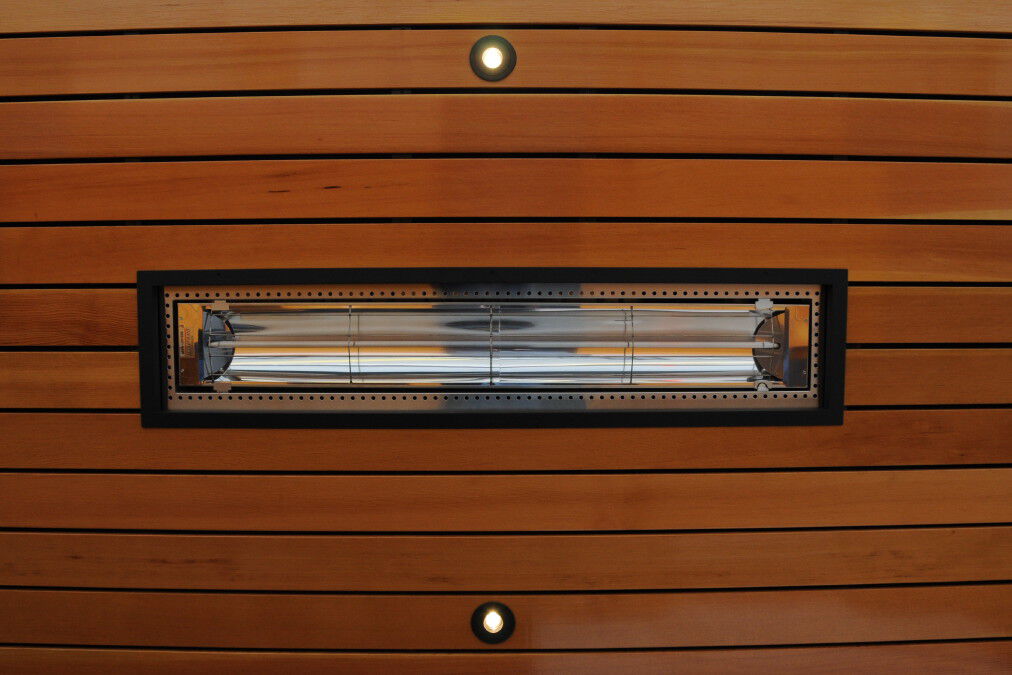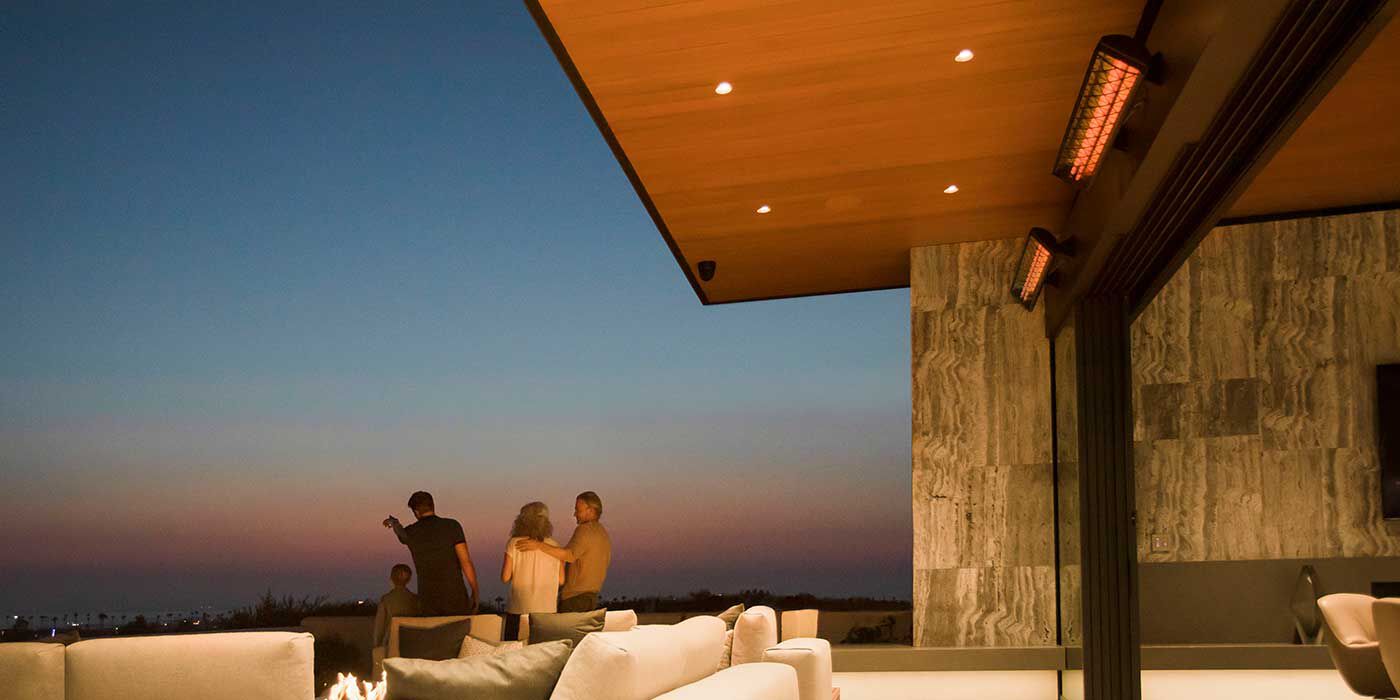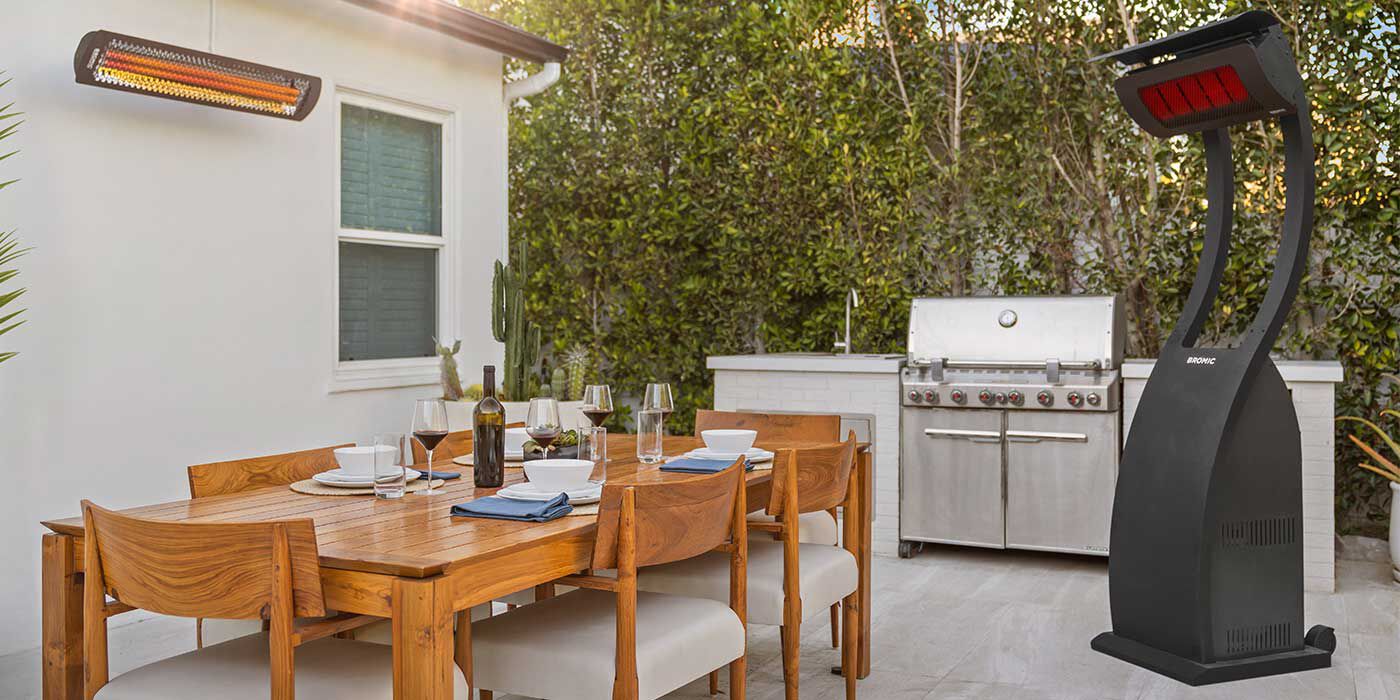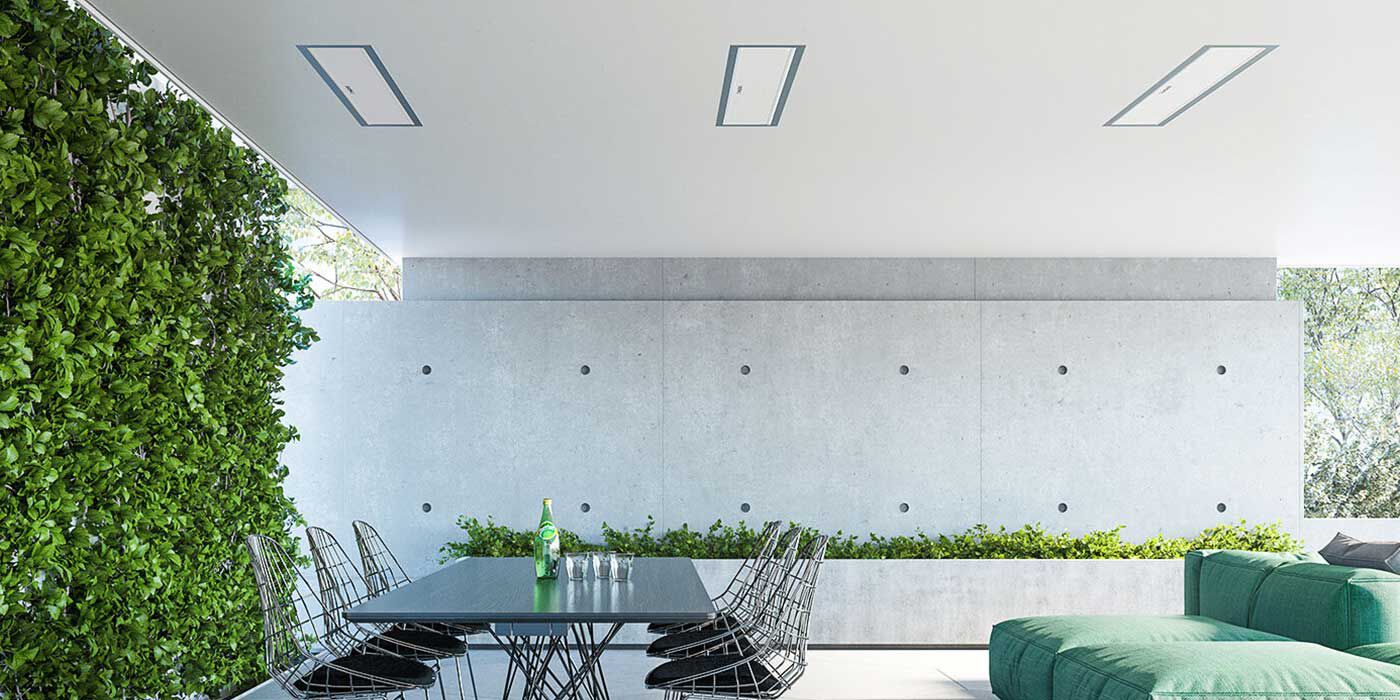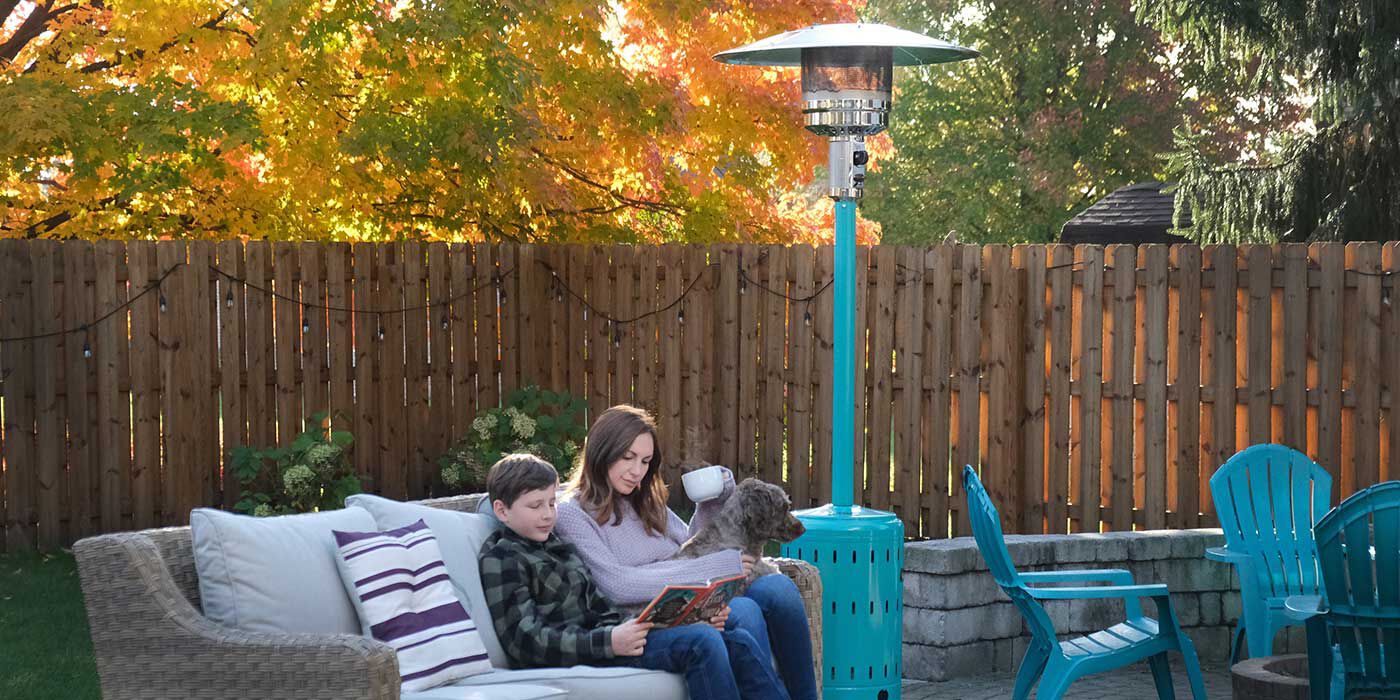By: Nick Janco, NFI Certified Master Hearth Professional
Last Updated: October 28, 2024
As the temperature drops, there's no reason to say goodbye to outdoor entertaining. A patio heater can transform your backyard into a year-round oasis. However, choosing the right heater can be a daunting task.
This FAQ guide will answer your burning questions and help you make an informed decision.
#1: What is a BTU?
A British Thermal Unit, or BTU for short, is the amount of energy needed to heat one pound of water by one degree Fahrenheit. One BTU is equal to the energy produced by one matchstick, or about 1.06 kilojoules.
The power for a patio heater is measured in BTUs, so the more BTUs a heater produces, the higher its heat output is. However, two patio heaters that produce the same amount of BTUs can have varying heating ranges based on their design and overall efficiency.
#2: What Size Heater Do I Need?
Use this simple equation to determine how many BTUs you need to heat your space: Cubic feet of area x desired temperature rise = BTUs needed.
Keep in mind, if you live in an area with high winds, the constant inflow of cold air can affect the heater’s overall efficiency and performance.
For further assistance with patio heater sizing, contact one of our NFI Certified experts at (800) 919-1904!
#3: What Types of Patio Heaters are Available?
Depending on the fuel type you prefer, there are several styles of patio heaters available. Propane and electric patio heaters are available in portable, hanging, recessed, and ceiling/wall-mounted styles.
Natural gas patio heaters are permanent installations and are available in ground-mounted, ceiling/wall-mounted, and hanging styles.
Check out our Patio Heater Buying Guide for more information.
#4: How Much Does It Cost to Use a Patio Heater?
After your initial purchase, the cost of operation depends on your fuel type. Propane is generally the most expensive, Natural Gas is typically the least expensive, and electricity is in between.
Natural Gas: A typical 40,000 BTU patio heater that heats an area of 314 square feet will cost an average of 48 cents per hour to use.
Electric: The average cost for a 4,000-watt electric patio heater is 60 cents per hour (15 cents per kilowatt hour).
Propane: A typical 40,000 BTU patio heater will cost about $1.70 per hour to use.
Gas and electricity rates may vary depending on where you live and the efficiency of your patio heaters.
#5: How Much Room Do I Need Around My Patio Heater?
Always consult the owner’s manual before installing your patio heaters to find out what the required clearances to combustibles are. This will help you to determine the safest location for your patio heaters.
Generally, portable patio heaters that produce between 35,000 and 50,000 BTUs will need at least 30-inches of clearance to combustibles on all sides of the reflector and emitter screen.
Smaller patio heaters that produce 10,000 to 35,000 BTUs need at least 24-inches of clearance to combustibles on all sides of the reflector and emitter screen.
#6: Can I Use a Patio Heater in an Enclosured Space?
Gas patio heaters cannot be used indoors. They should only be used in an open outdoor space with plenty of air flow.
Electric patio heaters can be used in both indoor and outdoor spaces. They don’t produce carbon emissions or greenhouse gases making them the safest and most environmentally conscious choice.
#7: Can I Put a Patio Heater on Grass?
No, free-standing patio heaters should always be placed on a solid, stable surface, especially if you live in a windy area.
Uneven ground, like grass creates instability and may cause your patio heaters to perform poorly, or even to tip over.
#8: Will My Patio Heater Get Too Hot While I'm Using It?
No, the base of a patio heater will not get hot during operation since it doesn’t come into direct contact with the heat source.
However, the emitter screen and dome will get hot.
#9: What is a Safety Tilt Switch?
Most patio heaters have a safety tilt-switch or tilt shut-off valve.
A safety tilt-switch is designed to automatically shut off the heater if it gets knocked over or if it’s tipped past a certain angle.
#10: What's the Difference Between Large, Single Dome Heaters and Triple Dome Heaters?
A large single dome patio heater directs heat in one direction, while a triple dome patio heater directs heat into three separate areas, providing a more even heat distribution and keeping the heat produced protected from the wind.
Both styles have a heat output of 40,000 BTUs and feature a ceramic cone insulator that allows for longer heat retention and improved heating efficiency.
How Do Patio Heaters Benefit Your Business?
We're Here to Help
Do you have more questions for us? Contact one of our NFI Certified experts at (800) 919-1904 today!
More Resources
Head over to our Patio Heater Buying Guide to learn even more about patio heaters.
Read all about electric, Propane, & Natural Gas patio heaters to find the best heater for your space.
Read our Patio Heater Spotlight to find out more about our brands and product offering.
 |
Nick Janco is a seasoned Technical Sales Representative with a decade of experience at Woodland Direct. As an NFI-Certified Master Hearth Professional, Nick is dedicated to helping his clients seamlessly integrate fire features into their homes, ensuring every detail is perfectly executed. While he's trained to assist with any fire-related project, Nick specializes in patio heaters. He's helped thousands of satisfied clients find the best heating solutions, offering valuable design, safety, and installation advice. Outside of work, Nick often spends time on the green enjoying a round of golf with his 5-year-old son. Call Nick or one of our experts in fire at 800.919.1904. |
